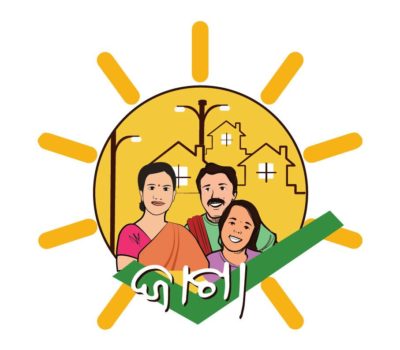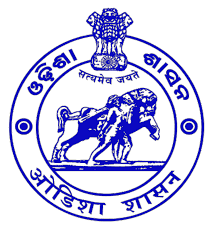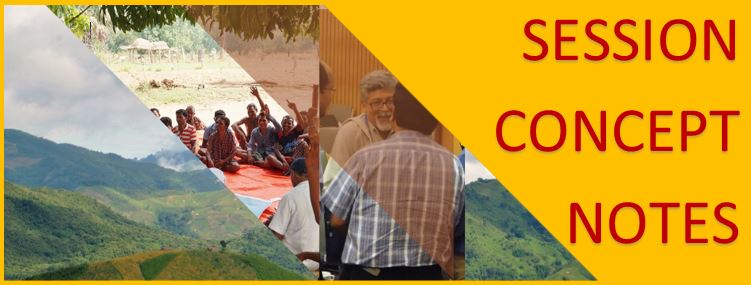
P1. Women Inheriting Land: Rights and Realities
Theme/Sub-Theme: Inclusive Land Tenure Security
Organiser: Landesa & Working Group of Women for Land Ownership (WGWLO)
This session will explore how laws and policy in India relate to the issue; the legal barriers; data on ground realities on the inheritance rights to land for women; the monitoring mechanism for this indicator at the country level for the SDGs - along with the good practices that have enabled progress in the country on this. The challenges faced while ensuring inheritance right to land of women at the grassroots will be dwelt upon, and strategies tried out successfully which can be up scaled will be shared in a discussant format. This would be done by a panel of discussants - macro perspective related to the issue from a gender expert; legal angles from legal expert; and experience sharing of success and learning for ensuring inheritance rights to land for women by organizations working at the grassroots from across the country.
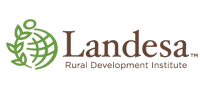

P2. One Thousand Land Laws: Mapping the Maze of Land Regulation in India
Organiser: CPR-Land Rights Initiative
For the first time ever, the Land Rights Initiative team at the Centre for Policy Research has created a database of over 1000 colonial and post colonial central and state laws for a geographically representative sample of eight states, namely, Andhra Pradesh, Assam, Bihar, Gujarat, Jharkhand, Meghalaya, Punjab, and Telangana. From land reforms to land acquisition, forest laws to laws applicable to Scheduled Areas, from laws promoting and regulating urban development to laws dealing with evacuee, enemy, ancestral and religious property, this vast legal apparatus governs the lives of ordinary citizens and their interactions with each other and the state. This panel will present findings from an ongoing study at CPR Land Rights Initiative that tries to map the maze of existing legal regulation on land, with a view to streamlining existing laws, and thereby shedding light on how to prevent and resolve the conflicts they necessitate.

P3. The Future of Urban Commons: Notes to both Fears and Possibilities?
Organiser: Azim Premji University This panel is an attempt to inquire into the question of urban commons from different entry points- land governance, tourism, environment and real estate without necessarily romanticising it. We hope to collectively open up the different ways in which urban commons negotiate with the city and interrogate what place they occupy and in what form, in our urban futures.

P5. Women, Farming, and Land Rights
Organiser: Housing and Land Rights Network & Ekta Parishad
Panellists will discuss various issues related to the rights of women farmers in India. In addition, they will also present the demands of women farmers, including the passage of a law on women farmers based on The Women Farmers’ Entitlement Bill 2011.
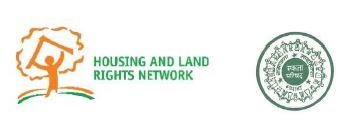
P6. Inclusive Land Tenure Mapping by Skilling Rural Youth
Organiser: Centurion University & NRMC-CLG
This session jointly organized by NRMC-CLG and Centurion University, Odisha will deliberate on the experience and scope of engaging rural youth trained in digital mapping tools, as licensed surveyors to address massive land and forest rights mapping requirements in rural and tribal India. The idea emanates from the scope in Odisha and Bihar’s Special Survey and Settlement Rules, which allows the provision of not only use of digital tools in land survey also the option of licensed surveyors.

P8. Closing the loop: From local to international framework in food security and land rights
Organiser: Dr. Chamu Kuppuswamy, University of Hertfordshire, United Kingdom
The importance of land tenure security, food security and gender rights to development are well known facts of governance and policy. This session aims to go beyond these notions, and look at them in an interrelated manner. How would increased tenure security reflect on household food security, and how would women’s rights to land reduce food insecurity. At a time when much work has been put in by the international community to shape a common understanding of development through the Sustainable Development Goals 2030 (SDGs), the use of the development indicators and targets under the SDGs is a useful and potentially harmonised tool to assess development and interlinkages. This session will address the land tenure-food security-women’s rights nexus through the lens of the SDGs by presenting data from various sources on specific identified indicators.
![]() Read More
Read More

P9. How far Land Policies ensure people centred land governance in India- Experiences from grassroots in intersections with policies and practices
Organiser: ILC- National Engagement Strategies (NES)
The failure of land reform processes are bound to escalate violence and unrest in the country. The intricacies and overlapping nature of laws and policies don’t necessarily and automatically ensure access, control and ownership of the people and communities over land and natural resources they depend on for their livelihoods. The session will focus on analysis of the existing policies relating to land governance from dependent communities’ perspective with People Centered Land Governance as the focus. The key areas to cover under each policy discussion are provisions, opportunities, limitations and recommendations.
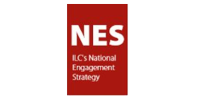
P10. Enhancing Impact of Forest Rights and Governance
Organiser(s): Tata Institute of Social Sciences (TISS)
Forest Right Act (FRA) has the potential to democratize forest governance by recognizing rights of local communities to protect and conserve forests; ensuring livelihood security; securing gender justice and meeting sustainable development goals of eliminating poverty and achieving ecological sustainability. Also, FRA provides the opportunity to address Left-Wing Extremism (LWE) in 106 districts across 10 states in India (CFR-LA Report, 2016). While the Forest Rights Act came into force on 1st January 2008, the scale of its implementation speed up only in the post-2009 period. Over the last one decade, the implementation of the FRA has not been effective as only 17 percent of the total potential forest area has been recognized under forest rights with wide variation in implementation in all the major potential states.
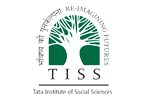
P11. Policy Dialogue to Achieve the Promise of Commons
Organiser: Foundation for Ecological Security
The session and panellists are expected to through some light on designing a set of specific, achievable and grounded recommendations and policy engagement strategies that could be taken to newly formed governments in Rajasthan, Madhya Pradesh, Chattisgarh, Odisha, Telengana, Andhra Pradesh and Jharkhand by mid 2019. Post ILDC, a group of players would work together to sustain the impact of a collective process at multiple levels and forums in the form of multi-layered campaigns..

P12. Contexts, Issues and challenges around Customary Tenure Regimes and Community Land Governance practices in NE India
Organiser: Rongmei Naga Baptist Association (RNBA), Housing and Land Rights Network (HLRN), NRMC-CLG
The focus will be on discussing what are the issues and challenges emerging under this regimes in the contemporary development context. These regimes were evolved in response to local contexts and were able to ensure sustainable land use contributing to culture and livelihoods effectively. However, there are many challenges emerging in response to development pathways around investment as well as conservation that are being now brought in.
P13. Technology Options to Improve Land Administration
Organiser: Welthungerhilfe
There is an urgent need to learn from recent experience within India in modernizing land information systems to develop viable and replicable models for improving and maintaining both textual and spatial records. The process of digitalizing textual records in various Indian states has pointed to several best practice principles, making the process transparent and results broadly accessible. The state of Andhra Pradesh for example is now using the blockchain technology to make land records tamper-proof. Another important best practice is the use of communityled, multi-sourced inventory processes to correct the mistakes in the manual records before they are computerized.
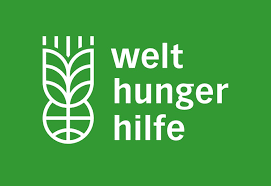
P14. Land Rights of the Urban Poor in the Context of Forced Evictions and ‘Smart City’ Development
Organiser: Housing and Land Rights Network
A large majority of the urban poor in India continues to suffer from inadequate living conditions arising largely from insecure housing and the lack of security of tenure. While there is some available data and discussion around the issue of landlessness and land rights in rural areas, the issue of land rights of the urban poor and their resulting marginalization is not accorded the same importance; neither has it been considered a priority. The crisis, however, is becoming more urgent with the rise in forced evictions and homelessness, including under the guise of “city beautification”, urban renewal, disaster management, infrastructure, “smart city projects,” and the systematic relocation of low-income groups to city peripheries.

P15. Upscaling community forest resource rights (CFR): Role of Technology
Organiser: ISB- Bharti Institute of Public Policy
Adoption of advanced technology to establish a robust system to monitor the rights recognition process. This session will provide an overview on usage cloud based data collection tool to monitor rights recognition process and post recognition process.

P16. Land Policy Reforms to Double Small Farmers Income and achieve SDG
Organiser: Caritas-SAFBIN, ICRISAT & CAP
SAFBIN, while engaging with small farmers and planning policy dialogue series, sees a compelling need in organising the second event of the series around land tenure reform. ILDC2019, provides an excellent convergence platform to jointly organize this event in partnership with Caritas India, ICRISAT and Centre for Agricultural Policy. This Policy Dialogue seeks to reiterate the land tenure dimensions of small farming in the context of South Asian Policy Landscape and engage with policy makers, researchers, practitioners and donors on the need, challenges and options to mainstream smallholder agenda..

P17. Land Policy Reforms to Double Small Farmers Income and achieve SDG
Organiser: Univeristy of Twente, Netherlands & NRMC-CLG
In this panel we wish to discuss the divergent needs between openness and protection of land data in India with 1. In how far do we agree or not that data technology providers are “neutral platforms” in the land governance scene?
land and data experts coming with rich local and global experiences based on the following questions:
2. Where should land data be stored; and what are the implications for protecting and/or sharing such data?
3. What kind of data, when and how should it be made publicly available online; and who should be involved in these decisions?
4. How can we avoid forgetting the people and their relationship to land behind our hopes for and worries about the data?
5. How can we learn, what land data is being collected and processed, how its derivates are used and for whose/what purposes?
6. Because of the pervasiveness of digital data technologies and increasing amounts of data, the issues outlined above challenge just about every policy domain. But how do these challenges play out specifically in the domain of land governance given that property and land rights are social constructs; and the various relationships between people and land have been governed by social and statutory institutions in comparatively bounded jurisdictional territories? What then do we need to specifically focus on in future with respect to the openness/protection tension in the domain of land governance?

P18. Status of Women Food producer and policy Recommendation for Recognition of their Identity
Organiser: ILC's National Engagement Strategies (NES)
The session will discuss the overarching status of women and land rights in India, followed by other panelists focusing on discussing the aspects of commons land, forest land, salt pan workers, fisheries and farmers from women’s perspective. The discussion thread would be role of women in above mentioned areas, issues they face and good practices in the respective areas of intervention of the panellists.

P19. Rights of pastoral communities in forest Rights Act: Initiative and challenges
Organiser: Centre for Pastoralism
The panel will include presentations by Tushar Dash, Ramesh Bhatti (Sahjeevan), Akshay Jasrotia and Amit Rathi (CfP).
Centre for Pastoralism to host a panel at the IDLC in the expectation of both sharing the current status and understanding on pastoralism and the FRA as well as in articulating how we might move forward towards a greater broad-basing of these efforts. Specific objective include:

P20. Modalities for building a community led restoration movement at scale
Organiser: WRI India
India has a rich history of landscape restoration interventions that have been implemented as part of various forest and wildlife management, watershed development and rural development programs. These projects have been implemented by multiple actors including government, civil society, private sector, communities and other institutions and have had varying impact on environment, communities and economy. Despite this long history, restoration in India is characterized by small scale, site-level successes that have not been scaled up. With forest dependent population emerging as a major stakeholder, this could be one pathway for achieving restoration at scale. This session would discuss the emerging experience from the local level on opportunities and constraints faced post rights recognition for resource management. What are the financial mechanisms, knowledge and capacity building measures that could be key for developing a network of community led restoration and management in India at scale. What are the potential pathway for strengthening the institutional mechanism for community led restoration?

P21. Securing Tenure in Urban India: First get the Record Right
Organiser: IIHS Centre for Land Governance
The Indian Institute for Human Settlements is coordinating a session on ‘Creating Urban Property Records, for Improved Security of Tenure’ at the 3rd India Land Development Conference (ILDC 2019). It will focus on what have been the recent initiatives for an improved coverage of land and property records in urban areas, and their inter linkages with planning and development processes, including their impact on security of tenure for informal settlements. It would also cover various legal, administrative and technological challenges faced in the recording and management of urban land, across the continuum of tenure status, and some of the possible ways to address these challenges.
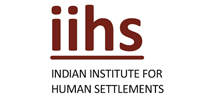
P24. Transforming Slums to Livable Habitat: Odisha Model
Organiser: Housing & Urban Development Department, Government of Odisha & Tata Trusts
The objective of the session is to discuss anecdotes of the land rights policy in the state, application of innovative technology, processes and partnerships in the project execution and best practices followed in Transferring Slums to Liveable Habitat.
